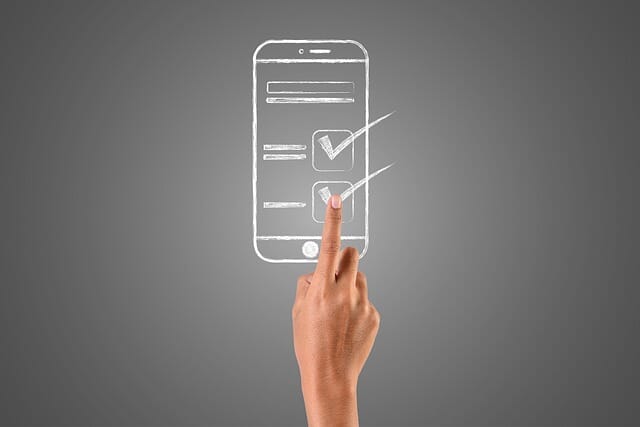
Reverse Phone Lookup Accuracy Rates: What You Need to Know
In today’s world, where Phone number location communication is instant and widespread, the ability to identify unknown callers has become increasingly important. Reverse phone lookup services have emerged as a valuable tool for many individuals looking to uncover the identity behind a phone number. However, one critical aspect that users often question is the accuracy of these services. In this article, we will delve into the Reverse Phone Lookup Accuracy Rates: What You Need to Know and explore various factors that influence these rates.
Understanding Reverse Phone Lookup Services
Reverse phone lookup services enable individuals to input a phone number and receive information about its owner. This can include the name, Phone directory search address, and other associated details. These services are available for both mobile numbers and landlines. The data is primarily sourced from public records, social media Mobile number lookup profiles, and user-generated content. However, the accuracy of this information can vary significantly based on several factors.
Factors Affecting Accuracy Rates
Data Source Reliability The primary determinant of accuracy in reverse phone lookups is the reliability of the data sources utilized by these services. Some platforms may use comprehensive databases that aggregate information from multiple public records, while others may rely on outdated or limited datasets. Therefore, it is essential to choose a service known for its extensive and regularly updated database.
Type of Number The type of number being searched can also impact accuracy rates. For instance, international reverse phone lookup services might face challenges due to varying data privacy laws across countries. Landline numbers typically have higher accuracy rates compared to mobile numbers because they are often connected to a fixed address and registered with local authorities.
User-Generated Content Many reverse phone lookup apps allow users to contribute information about specific numbers based on their experiences or interactions. While this can enhance the database's richness, it can also introduce inconsistencies or inaccuracies if users report incorrect information.
Frequency of Updates The frequency with which the service updates its database plays a crucial role in accuracy as well. A platform that refreshes its records regularly is more likely to provide up-to-date information compared to one that does not prioritize updates.
Regional Variability Users should also consider regional variability when searching for numbers in different areas or countries. Some regions may have better-documented records than others, impacting the overall success rate of identifying unknown callers through reverse phone searches.
Exploring Different Types of Reverse Phone Lookup Services
Different types of reverse phone lookup services cater to varying needs:

-
Mobile Number Lookups: These specialized services focus on identifying mobile numbers and may utilize unique algorithms or partnerships with telecom providers for accurate results.
-
Landline Reverse Phone Search: As mentioned earlier, landline searches generally offer higher accuracy due to more stable registration processes with local governments.
-
International Reverse Phone Lookup: These services aim to identify international numbers but can struggle with accuracy due to different regulations governing personal data in various countries.
Each type has its strengths and weaknesses concerning accuracy rates; therefore, understanding your needs will guide you toward choosing the appropriate service.
The Role of Technology in Enhancing Accuracy
Advancements in technology have significantly improved reverse phone lookup accuracy rates over recent years:
-
Machine Learning Algorithms: Many modern applications use machine learning algorithms that continually learn from user interactions and corrections made by individuals who submit feedback about their experiences with certain numbers.
-
Big Data Analysis: With access to large datasets from multiple sources, companies leveraging big data analytics can cross-reference numerous pieces of information quickly, leading to improved identification processes.
-
Blockchain Technology: Some forward-thinking companies are exploring blockchain technology as a means of securing and verifying user-submitted data while enhancing transparency around how data is collected and used.
As technology evolves, so too will the methods employed by reverse phone lookup services refining their accuracy over time.
Common Misconceptions About Reverse Phone Lookup Services
Several misconceptions surround reverse phone lookups that could mislead users regarding their effectiveness:
All Services Are Equally Accurate: This assumption overlooks significant differences between service providers in terms of data sources and update frequencies.
If I Find One Accurate Result, All Results Will Be Accurate: Even reputable services may yield varying results based on different criteria applied during each search attempt.
These Services Can Provide Detailed Background Checks: While some platforms offer additional background check features alongside standard lookups—this often comes at an extra cost or requires subscription plans for comprehensive insights beyond basic caller ID functionalities.
Reverse Phone Lookups Are Invasive: Most reputable providers only access publicly available data subjecting searches within established legal frameworks related strictly towards consumer protection regulations ensuring privacy rights remain respected throughout this process.
How Accurate Are Reverse Phone Lookups?
While it’s difficult to assign an exact percentage regarding overall accuracy across all platforms—most reliable sources indicate that top-tier applications boast an impressive success rate ranging anywhere between 70%–90%. However—results may fluctuate depending on factors discussed previously including region type historical trends within particular datasets etc., offering variance levels across different scenarios requiring careful consideration before drawing conclusions based solely upon isolated findings from one app alone!
Frequently Asked Questions
Is it legal to use reverse phone lookup services?
Yes, using reverse phone lookup services is generally legal as long as they comply with privacy laws regarding accessing public records and personal information sharing practices within your jurisdiction.
Can I trust the information provided by these apps?
While many reputable apps strive for high accuracy rates by sourcing reliable data—there remains room for error especially when relying on user-generated content or if databases are not regularly updated; therefore exercising caution alongside verification methods is wise!
Are there any free options available?
Yes! Several websites offer basic free reverse phone lookups although they might lack detailed results compared paid alternatives which often provide more comprehensive reports including background checks demographics etc., but considering privacy concerns it's advised always read terms before proceeding further!
What should I do if I find incorrect information?
If you encounter inaccuracies while utilizing a particular service—you should contact customer support directly detailing your findings providing evidence where possible so necessary adjustments can be made promptly improving future searches!
By understanding Reverse Phone Lookup Accuracy Rates: What You Need to Know, users can make informed decisions when seeking out unknown callers while appreciating both potential benefits limitations associated with various platforms available today!